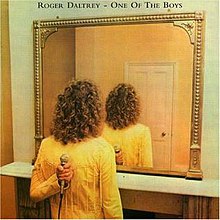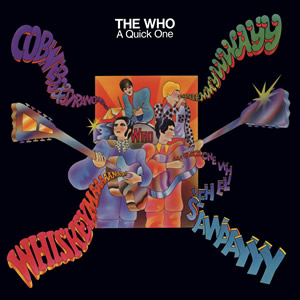
A Quick One is the second studio album by the English rock band the Who, released on 9 December 1966. A version of the album with an altered track listing was released under the name Happy Jack on Decca Records in April 1967 in the United States, where the song "Happy Jack" was a top 40 hit.

The Who by Numbers is the seventh studio album by English rock band the Who, released on 3 October 1975 in the United Kingdom through Polydor Records, and on 6 October 1975 in the United States by MCA Records. It was named the tenth-best album of the year in The Village Voice Pazz & Jop critics poll.

It's Hard is the tenth studio album by English rock band the Who. Released in September 1982, it was the final Who album to feature bassist John Entwistle, who died in 2002. It was also the second and final Who studio album with drummer Kenney Jones, as well as the last to be released on Warner Bros. Records in the US. It was released on Polydor Records in the UK, peaking at No. 11, and on Warner Bros. in the US where it peaked at No. 8 on the Billboard Pop Albums chart. The US rights to both this album and Face Dances subsequently reverted to the band, who then licensed them to MCA Records for reissue. The album achieved gold status by the RIAA in the US in November 1982. It was their last album for over two decades until Endless Wire in 2006.

Who Are You is the eighth studio album by the English rock band the Who, released on 21 August 1978 by Polydor Records in the United Kingdom and MCA Records in the United States. Although the album received mixed reviews from critics, it was a commercial success, peaking at number 2 on the US charts and number 6 on the UK charts.

"My Generation" is a song by the English rock band the Who, written by guitarist and primary songwriter Pete Townshend. One of the band's most recognizable songs, it was placed number 11 by Rolling Stone on its list of the “500 Greatest Songs of All Time” in 2004 and 2010, re-ranked number 232 in the 2021 edition. It became part of The Rock and Roll Hall of Fame's 500 Songs that Shaped Rock and Roll and is inducted into the Grammy Hall of Fame for "historical, artistic and significant" value. It is considered one of the band's signature songs.

Odds & Sods is an album of studio outtakes by British rock band the Who. It was released by Track Records in the UK and Track/MCA in the US in October 1974. Ten of the recordings on the original eleven-song album were previously unreleased. The album reached No. 10 on the UK charts and No. 15 in the US.

"5:15" is a song written by Pete Townshend of British rock band The Who. Part of the band's second rock opera, Quadrophenia (1973), the song was also released as a single and reached No. 20 on the UK Singles Chart, while the 1979 re-release reached No. 45 on the Billboard Hot 100.
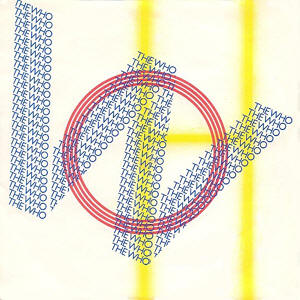
"Who Are You" is the title track on the Who's 1978 album, Who Are You, the last album released by the group before Keith Moon's death in September 1978. It was written by Pete Townshend and released as a double-A-sided single with the John Entwistle composition "Had Enough", also featured on the album. The song was one of the band's biggest hits in North America, peaking at number 7 in Canada and at number 14 in the United States, and has become one of the band's signature tunes at their live shows. The piano on the track is played by Rod Argent.

Russell Glyn Ballard is an English musician.
"Boris the Spider" is a song written by the Who's bass guitarist, John Entwistle. It appears as the second track of their 1966 album A Quick One. This song is claimed to be Entwistle's first composition, and became a staple of live shows. This song, along with "My Wife", "Heaven and Hell" and "The Quiet One", were Entwistle's most popular songs to perform live. Though this song was popular, it was not released as a single in the US or UK. In Japan, "Boris the Spider" was released as the B-side to "Whiskey Man" in 1967.

Ride a Rock Horse is the second solo studio album by English singer Roger Daltrey, released on 4 July 1975 by Track in the UK and MCA in the US. Ride a Rock Horse was recorded during Daltrey's filming commitments for Ken Russell's film Lisztomania. The album's cover, which is photographed and designed by Daltrey's cousin Graham Hughes, depicts the singer as a rampant centaur.

Under a Raging Moon is the sixth solo studio album by English singer Roger Daltrey, released in September 1985 by Atlantic Records. The album reached No. 42 on the US charts, and the single "After the Fire", written by Pete Townshend, reached No. 48. It includes a tribute to Keith Moon, former drummer of the Who who died in 1978, on the track "Under a Raging Moon". In Canada, the album reached No. 33 on the RPM Magazine charts, and "After the Fire" reached No. 53.

Parting Should Be Painless is the fifth studio album by English singer Roger Daltrey, released in February 1984, on the label Atlantic, in the United States, and on WEA in Germany, and Japan. The album was Daltrey's first solo album since the initial break-up of rock band the Who, and the first by any member of the band since the break-up. "Walking in My Sleep", "Parting Would Be Painless", and "Would a Stranger Do" were all released as singles. Two of those singles failed to chart, while "Walking in My Sleep" was a success, peaking at No. 4 on the Mainstream Rock Tracks chart.

A Celebration: The Music of Pete Townshend and The Who, also known as Daltrey Sings Townshend, is a music event and a later live album by Roger Daltrey documenting a two-night concert at Carnegie Hall in February 1994.

"Real Good Looking Boy" is a song written by the guitarist of the British rock band The Who, Pete Townshend. It was originally released in 2004 on the compilation album Then and Now, and was one of two new songs on that album, the other being "Old Red Wine". Together, they were the first new songs released by the Who for 15 years. It was later released as an edited single backed with the aforementioned song. "Real Good Looking Boy" was later performed in the 2007 rock musical The Boy Who Heard Music. The song peaked at #28 on the Heritage rock chart. Bassist Greg Lake and drummer Zak Starkey, as well as keyboardist John "Rabbit" Bundrick played on this song.

"Dogs" is a UK single written by Pete Townshend and released by the Who in June 1968. It reached number 25 on the UK singles chart, lower than any single the band had released in several years. The B-side of the UK single was "Call Me Lightning". Both songs were originally released mixed in mono only, as they were not intended for album release.

Tommy is a soundtrack album by The Who with contributions from numerous artists. The soundtrack was used in the 1975 Tommy film that was based on the original album that was released by The Who in 1969. Pete Townshend oversaw the production of this double-LP recording that returned the music to its rock roots, and on which the unrecorded orchestral arrangements he had envisaged for the original Tommy LP were realised by the extensive use of synthesiser.
The Who Tour 2000 was partially in support of The Who's live album The Blues to the Bush and their first full-fledged tour as a five-piece band since The Who Tour 1982.
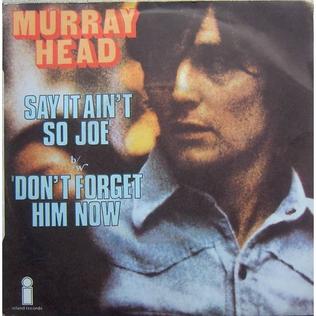
"Say It Ain't So, Joe" is a song written and performed by the English actor and singer Murray Head. The song was released on Head's second studio album Say It Ain't So, and was also released as a single in 1975.
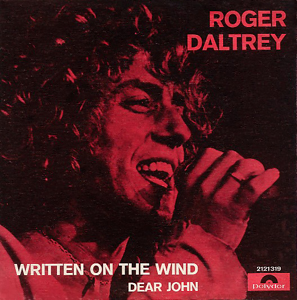
"Written on the Wind" is a song by The Who's lead vocalist, Roger Daltrey. The song was written by Paul Korda, the song also features Korda playing piano. The song was released as a single on Polydor in the UK in April 1977, and reached and peaked at number 46 in the charts but only stayed in the charts for two weeks, The single was never released in the US.
